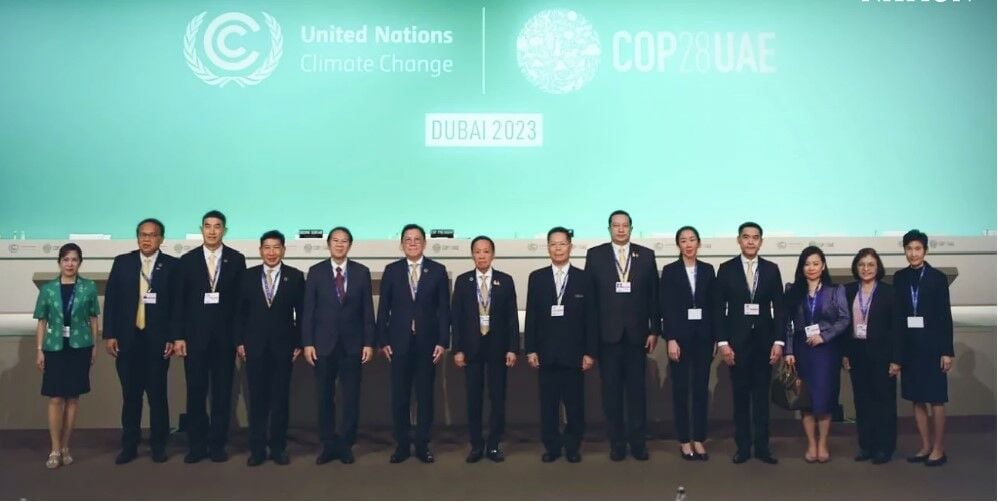Thai minister heats up COP28 with climate change commitment

At the COP28 climate talks in Dubai, Thailand’s Minister of Natural Resources and Environment, Police General Phatcharavat Wongsuwan, took centre stage, making bold declarations and unveiling ambitious plans to combat climate change.
In a fervent address on December 10, Phatcharavat reaffirmed Thailand’s commitment to achieving carbon neutrality by 2050, sending shockwaves through the climate change talks. He underlined the urgency of global cooperation to reach the critical US$100 billion climate finance goal by 2025, asserting its pivotal role in aiding developing nations in their climate pursuits.
Highlighting Thailand’s resilience strategy, Phatcharavat shed light on the updated National Adaptation Plan (NAP). This comprehensive plan tackles climate change impacts head-on, focusing on critical areas like water management, agriculture, and public health. The NAP is Thailand’s blueprint for a climate-resilient future.
Phatcharavat revealed a groundbreaking climate-smart rice farming project funded by the Green Climate Fund. This initiative aims to transform traditional farming practices, promoting low-emission techniques. The move is part of Thailand’s broader efforts to reduce greenhouse gas emissions while ensuring food stability and security to battle against climate change.
In a significant stride towards environmental governance, Environment Minister Phatcharavat announced the drafting of Thailand’s first Climate Change Act. This legislation will regulate emissions and bolster climate resilience, marking a pivotal step in the nation’s commitment to combating climate change.
Phatcharavat set the bar high for Thailand, pledging to peak emissions by 2025. Additionally, the nation aspires to increase renewable energy use in electricity to 68% by 2040 and an impressive 74% by 2050. These ambitious targets showcase Thailand’s determination to transition towards a sustainable and green energy future, reported The Nation.
Expressing optimism amid international tensions, the environment minister anticipated that the Dubai talks would pave the way for achieving the 1.5 degrees Celsius target outlined in the Paris Agreement. The Loss and Damage Fund, designed to aid vulnerable countries impacted by climate change, received noteworthy financial commitments from multiple nations during COP28.
In a stark reality check, Reuters reported yesterday, December 11, that deep international divisions emerged at the Dubai talks, particularly regarding the future role of oil, gas, and coal. These divisions pose a significant challenge to the efforts of nearly 200 countries attempting to reach a comprehensive agreement before the summit’s scheduled conclusion on December 12.
Latest Thailand News
Follow The Thaiger on Google News:


























